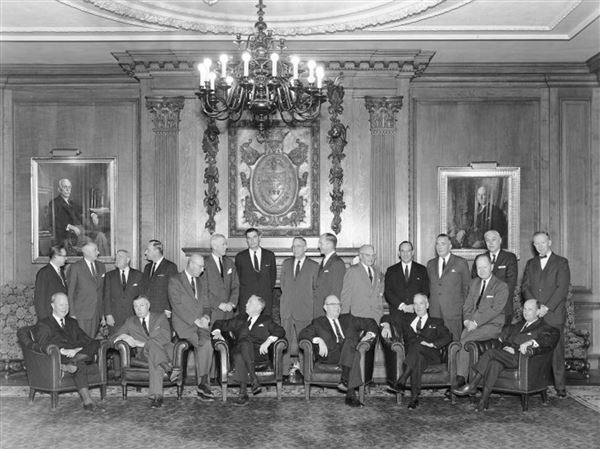An amendment that would have exempted waste-coal power plants from certain new Environmental Protection Agency emissions regulations failed to pass the U.S. Senate earlier this week.
The measure, co-sponsored by Pennsylvania Sens. Bob Casey, a Democrat, and Pat Toomey, a Republican, would have permitted those facilities, including four within a 30-mile radius of Johnstown, to exceed revised standards for emissions and cross-state pollution that are set to be implemented later this year.
Even if the amendment had eventually been signed into law, the plants still would have needed to comply with mercury and air toxics standards.
Fifty-four members voted in favor of the proposal that was introduced as an attachment to the Keystone XL pipeline bill. Forty-five opposed it. However, a super-majority of 60 votes was needed for passage, so it died.
Supporters of the waste-coal power plants feel they provide an overall environmental benefit by getting rid of refuse coal that can pollute water with acidic runoff created by rain and melting snow. They also point out that the plants – of which there are 19 in the country, including 14 in Pennsylvania – employ approximately 1,000 people.
Some of them might not be able to comply with the soon-to-be-enacted regulations, according to Jeff McNelly, executive director of the Anthracite Region Independent Power Producers Association, a Camp Hill-based trade organization for electric generating plants that produce alternative energy and/or steam.
“This amendment is a responsible solution that will ensure that existing coal waste piles across Pennsylvania can be cleaned up appropriately to help protect drinking water and public safety,” Casey said. “Allowing coal waste plants to continue to dispose of this coal refuse will speed cleanup and protect communities from the damage of acid mine drainage and uncontrolled air pollution from accidental burning of the legacy waste piles.”
Despite its failure as an amendment, the proposal could be considered again later in a different form.
“Sen. Toomey is disappointed that his bipartisan amendment with Sen. Casey to protect jobs and ensure that waste coal plants are able to remain operational was not adopted,” said Steven Kelly, Toomey’s press secretary.
“Sen. Toomey remains committed to protecting our environment and keeping good paying energy jobs here in Pennsylvania. In the near future, he will be introducing the measure as a stand-alone bill and will continue the fight.”
Rep. Keith Rothfus, R-Sewickley, proposed a similar piece of legislation – the Satisfying Energy Needs and Saving the Environment Act of 2013 – in the previous House session. It called for excluding the waste-coal power plants from certain?guidelines pertaining to hydrogen chloride and sulfur dioxide.
He, too, hopes to soon bring the issue up again.
“Having Sens. Casey and Toomey join me in advocating for the SENSE Act is a great step forward,” said Rothfus, the 12th district’s congressman.
“The bill we will reintroduce will give power plants relief, protect hundreds of jobs and clean up Pennsylvania’s landscape. It is very exciting that a majority of senators support the idea and we are committed to seeing the bill enacted.”
Since it received 54 votes as an amendment, the measure could stand a chance to pass the Senate if presented as a stand-alone bill when it would only need a simple majority.
“I think the future is very encouraging that our Congress – senators and representatives – seem to realize the importance of this,” McNelly said.
The power plants create energy from refuse coal that has been left behind in boney piles. The lower-quality coal emits more carbon dioxide into the air than burning regular coal does. It also leaves behind an ash that must be disposed of in some way.
“They claim that they’re making this waste coal disappear, but all they’re doing is putting it into the air,” Mike Ewall, co-director of the Philadelphia-based Energy Justice Network, said. “It makes no sense to pretend that because waste piles are being converted into smaller amounts that somehow minimizes the pollution that comes out of these power plants.”
Several environmental groups support stabilizing the piles by planting beach grass instead of transporting the coal and using it in power plants.
Dave Sutor is a reporter for The Tribune-Democrat. He can be reached at (814) 532-5056. Follow him on Twitter @Dave_Sutor.
First Published: January 24, 2015, 12:54 p.m.














